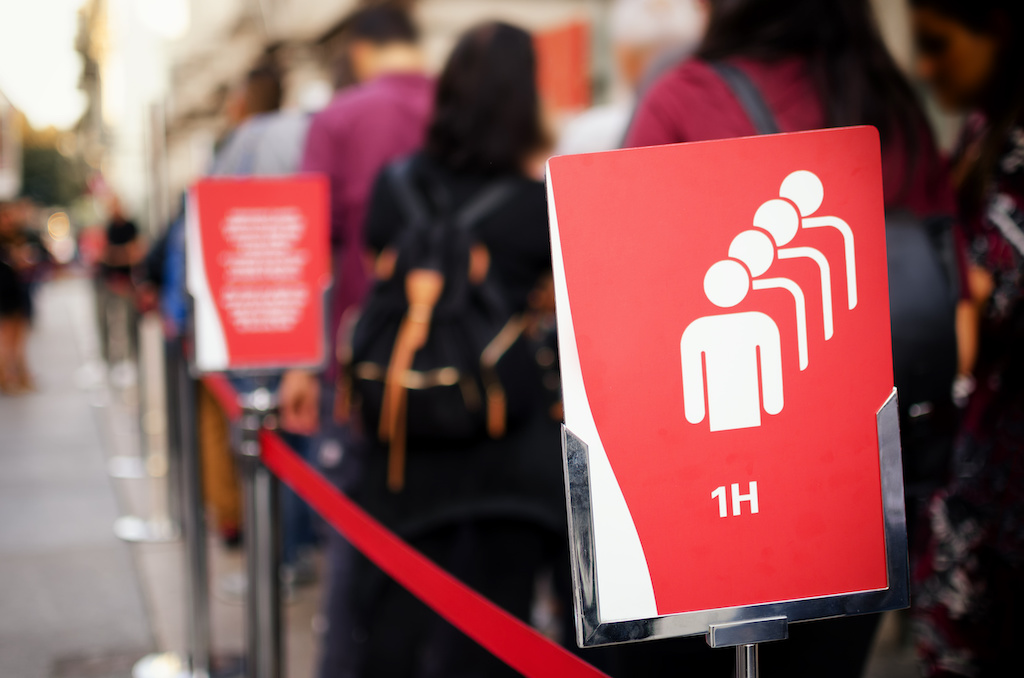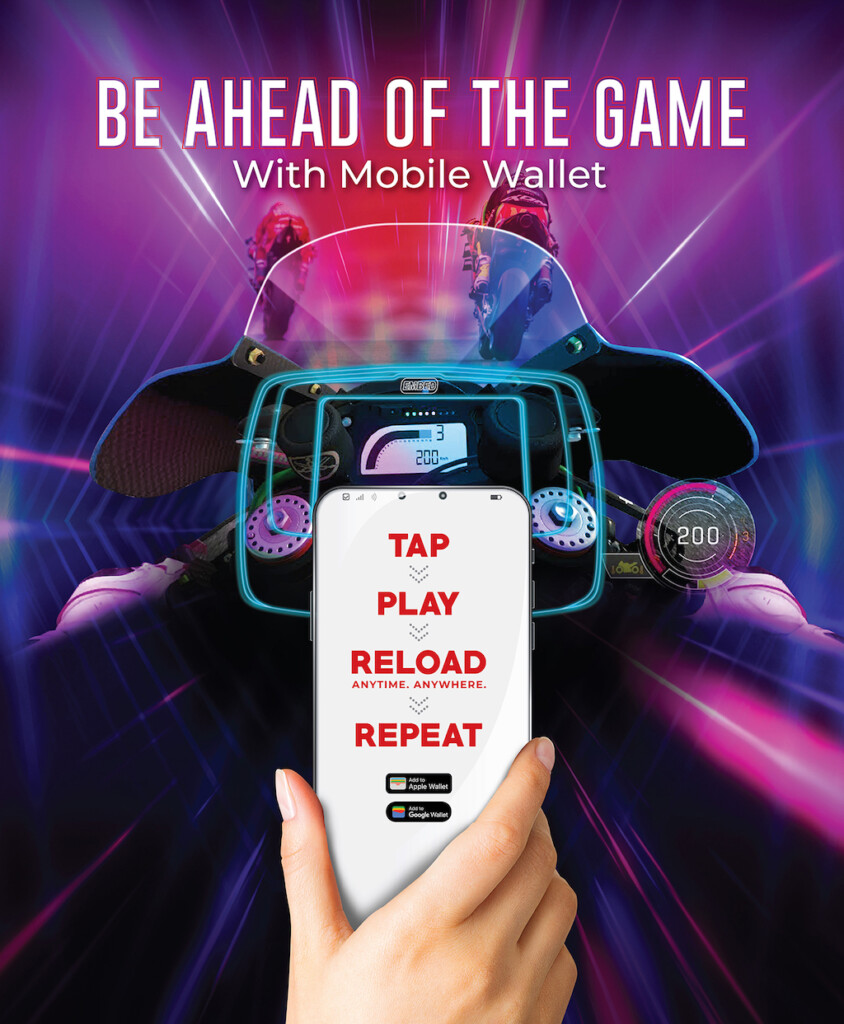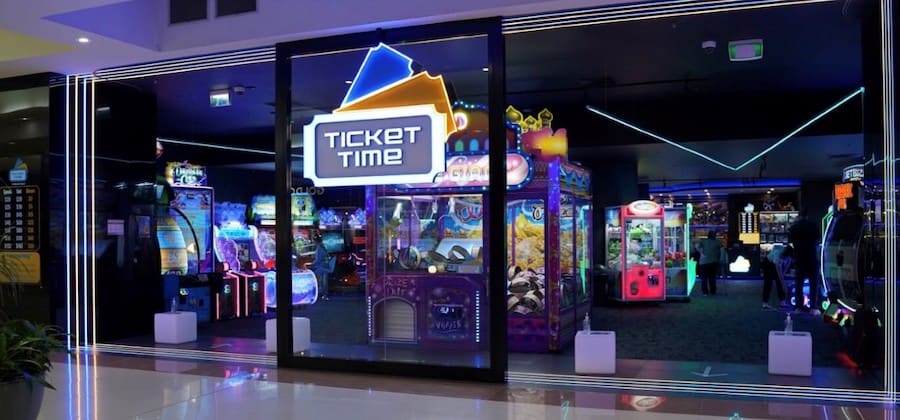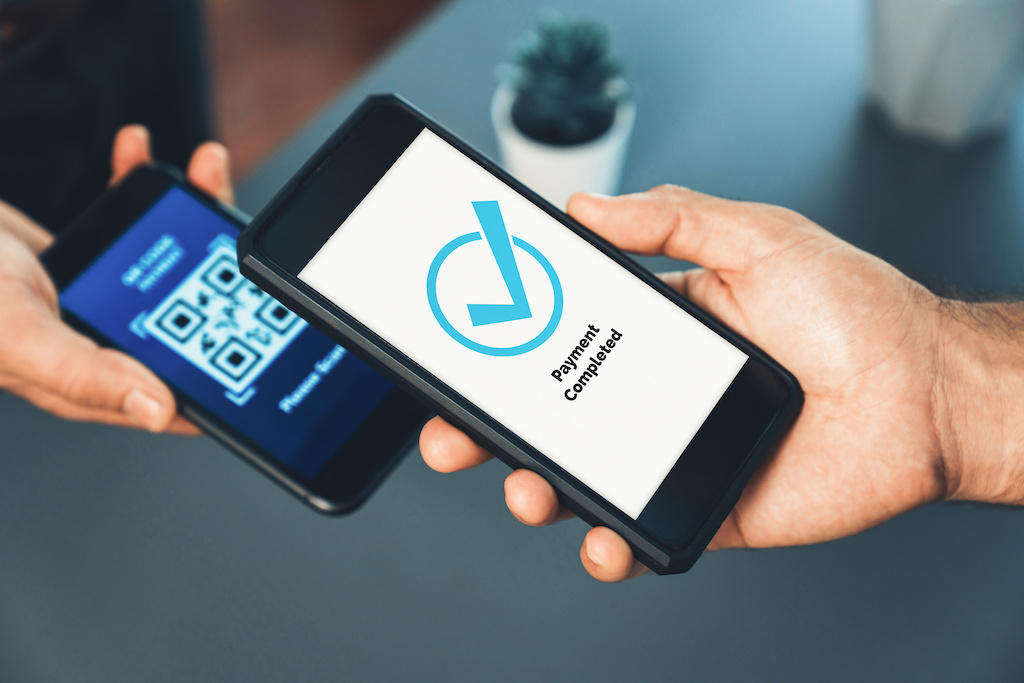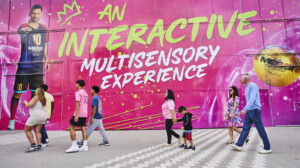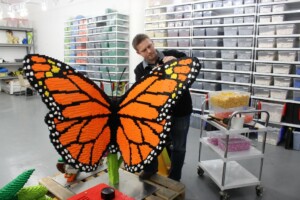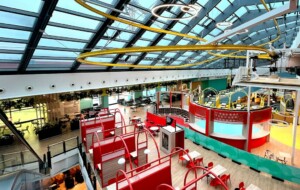Family entertainment centres (FECs) have changed a lot in the last decade. From new games and technologies on offer for guests, like VR and AR, to more sophisticated guest engagement tools, a simple day out with friends and family has developed into an ‘experience.’



This change has partly been driven by visitor expectations. Today’s consumers increasingly value quality time and memorable experiences over collecting commodities. This is what Joe Pine and James Gilmore coined the ‘experience economy;’ customers see value in time well spent. It is evident all across the attractions industry, from the big players like Disney to the mom-and-pop-run arcades – guests want to spend quality time with their loved ones, and they want to feel like they are at the centre of that experience.
Digitisation has also helped to advance this trend. It enables more personalisation and allows operators to stay connected with their guests for the whole visitor journey, including before and after their visit. This puts guests in the driving seat and makes them feel valued, like the experience is tailored for them.
As Pine says:
“Because of the shift in the experience economy, every company in the world is competing against every other company in the world. And they are competing for the time, attention, and money of every individual customer.”
So, given this level of competition, how can FECs stay ahead of the game, and ensure that their customers return, spend more, and engage with their brand? One simple way is to offer cashless transactions.
We set out three ways that cashless solutions can help operators simplify their guests’ journey, boost their enjoyment, and create loyal fans that will come back again and again.
1. Cashless means more time playing, less time queuing
Americans spend around 37 billion hours each year waiting in line, according to The New York Times. And, if there is one top complaint or pain point for attraction visitors, it is queuing. For FECs, there is nothing worse than having to stop the fun, walk over to a kiosk, and stand in line, just to add credit to a game card, or buy more tokens.
Not only is this irritating for customers, but it also means they’re more likely to leave and do something else with their valuable time instead. In fact, according to a retail sector report by Box Technologies and Intel, people won’t even bother joining a queue if it has more than seven people in it. They are also likely to give up and leave after around nine minutes.
The same study found that 86% of consumers will avoid a store if they think it has long queues. Plus, 70% are less likely to return if they’ve had to queue for a long time on a previous occasion. So, queues also have a lasting impact on guest loyalty.
Viewed through the lens of these statistics, offering FEC guests a way of topping up easily without having to even leave their game is a simple and effective solution. Enter the Mobile Wallet.
The Mobile Wallet
The Mobile Wallet is an innovative virtual game card from Embed, a leading worldwide supplier of point-of-sale and revenue management systems.
It works in the same way as a conventional game card. However, it is stored on the guest’s mobile device in their Apple Wallet or Google Wallet. As a result, they don’t need to stop their game or activity when they’re out of credit. Instead, they can simply tap and reload.
The aim is to make the guest experience as smooth as possible, explained Andy Welsh, Embed’s CTO:
“It’s very different from traditional offerings, where you have an app, you download the app, you register on the app, you put your credit card on the app, and then you can use it. The Mobile Wallet cuts through all of that very simply. You just put your card in the wallet and use the wallet as your main point of contact with the system.
“When we spoke to a lot of our customers, there was obviously this need. We are an economy that is based on self-serve. However, there were just these blocks. If you take a look at the apps that some other companies in the industry make, the uptake hasn’t been that great. We realised that what people have to go through to actually use these was way too complicated.”
As well as ensuring a frictionless experience and cutting queues, contactless solutions also boost revenue. For example, according to the 2022-2023 metric results from Embed’s customers, the Mobile Wallet has demonstrated an average reload value 5x that of cash, at $50.57, compared to a $31.95 reload value when guests use a credit card to top up their game card, and just $9.90 when they use cash.
2. Cashless transactions are easy to use and in demand
There is a perception among FEC operators that digitalising processes will be complex, expensive, and difficult for guests to understand. However, today’s digital-savvy consumers expect cashless transactions – for most people, particularly Millennials and Gen Z, it’s the norm.
Cashless solutions, like Embed’s KIOSK, are so easy to use in fact, that they have even been used in unmanned locations, where there are no staff on hand to explain. One example is Ticket Time in Queensland, Australia. This business opened a pop-up arcade during the pandemic, taking advantage of vacant retail space and the consumer surge after the lockdown period.
With government-mandated regulations for operation during COVID, like capacity management, guest arrival check-in for tracking and tracing purposes, social distancing requirements, etc., owner Luke Phillips needed a system that could act as his “staff” without compromising his customers’ experience:
“The Embed [self-service kiosk] acts like a staff member. It surprised me how much people actually use it, and the amount of people who use it. With smaller staffing needs during this time, this machine has been so valuable for us. It takes the pressure off our staff in busier times. It’s the best investment machine I have purchased.”
Embed offers comprehensive training and support to FEC operators when they bring in cashless solutions. These support FECs in rolling out their new systems and also in talking to guests about the technology, showing them how simple it is to use.
In terms of ease of use, cashless solutions can also make it possible for more people to enjoy the experience. With the Mobile Wallet, for example, there is no need for a credit card. This makes it accessible for people who don’t have a credit card or can’t get one.
Today’s consumers expect contactless transactions
The cashless revolution is showing no signs of slowing. It showed steady growth pre-pandemic, but then COVID dramatically increased the adoption of contactless payments. Now, in a post-pandemic world, many people still prefer contactless transactions as, in addition to making payments easier, there are fewer germs involved than with handling banknotes or coins. Consumers expect safer and faster ways to engage businesses.
Against this rising demand, FECs that do not offer cashless solutions risk being left behind. According to PwC, cashless transaction volume in the Asia-Pacific region will increase by 109% from 2020 to 2025 and then by 76% from 2025 to 2030. In Africa, it will rise by 78% from 2020 to 2025 and 64% from 2025 to 2030.
In Europe, these figures are 64% and 39%, while Latin America will see a 52% and then a 48% growth. The US and Canada will see a rise of 43% and then 35%. This means that by 2030, the number of cashless transactions per capita will be roughly double to triple the current level.
FEC operators should think about it from the point of view of their customers. If visitors expect to be able to pay by card, then they will choose the FEC that allows them to do this, rather than the one which will make them leave and visit a cashpoint, or queue at a change machine for quarters.
3. Cashless solutions lead to a more connected experience
As the experience economy continues to grow, one thing that we are seeing is that today’s guests want to have a more personalised experience. They want to feel like their favourite venues recognise them, value their visit, and offer activities or deals that are tailored to them. According to McKinsey, 71% of consumers expect companies to deliver personalised interactions. Plus, 76% experience frustration when this doesn’t happen.
Personalised interactions increase consumer loyalty and trust while enhancing a brand’s capacity for successful customer interaction and communication. But where do cashless solutions come into this? It all comes down to data and its role in the customer journey.
When visitors pay using contactless solutions, for instance by using their phone or their card, operators can collect their data. Even more so if this is linked to a membership account or game card. By doing this, they can learn more about what their visitors like and don’t like. Operators can gain insights into which games their guests play, which times of day they usually visit, their demographic group, and more.
By using this data, operators can create personalised offers for guests, therefore driving loyalty and revenue.
Data is everything
We know data is vital. Yet it can also be time-consuming. Research from analytics platform Alteryx and IDC, the International Data Corporation shows that 30% of staff who do data work feel that they spend too much time in data preparation, a task that can be automated.
In addition, the study found that 44% of the time is wasted every week on unsuccessful data activities. And 25% of staff who do data work find that analytics tools are too complicated. Imagine what an operator could be doing with this precious time if they focused on the things that will make their FEC flourish. Not to mention that many small and medium-sized businesses in the sector lack the luxury of having access to data teams or data analytics teams.
In response to this need, Embed developed STATS. This is a robust data visualisation platform developed with and powered by Amazon Web Services (AWS).
This new tool allows operators to track game and guest activities. It offers deep insights into game performance and revenue, guest activity, average dwell time and spending habits, as well as manpower analysis, inventory management, and more. From a guest engagement perspective, this is hugely valuable. It can be used to power things like targeted offers and personalised messaging.
Connecting back to the experience economy as discussed earlier, this helps FECs to engage with their visitors throughout the guest journey, including the pre-and -post-visit stages, therefore building loyalty and staying top of mind.
STATS meets data needs
“Given that FECs come in single or multiple locations, we worked closely with both small-medium and large FEC customers to understand their needs and deliver the deep visualised data insights operators wanted from their Embed system” explains Andy Welsh. “We combed through their data and created sets that will suit the needs of any organization.
“Out of these efforts, demos, and trials came a dashboard so flexible and versatile that it doesn’t matter what size of FEC is using it. Everyone can benefit from STATS to maximise their business.”
Kevin Taylor is the CFO of Station 300, a bowling alley and family fun centre chain in the US. He says:
“STATS in my opinion is one of the most effective and versatile management tools we have at our disposal with which to manage our business. It is well done and I love it! I am quite impressed with the program and the visibility it provides for our business. It has provided a level of visibility that proves more valuable with each use. Implementation was straightforward, and the team was a pleasure to work with.”
Fun Factory, an indoor FEC business with 20 locations across the US was another early adopter of STATS. Jim MataBishop, district manager, says:
“STATS is one of the best upgrades we have seen to the Embed system, giving real-time information to our operations. The ability to stand back and look at trends with multiple locations or drill down to individual stores or machines is invaluable.”
Keeping up with the experience economy with cashless solutions
Today’s guests expect an easy, frictionless experience that allows them to pay quickly and safely so that they can focus on fun, not admin. They also expect a more personalised experience and will reward businesses that provide tailored offers and that stay engaged with their wants and needs. By digitising operations and bringing in cashless solutions, operators can tick all of these boxes.
The experience economy is here to stay, and FECs must keep up.


